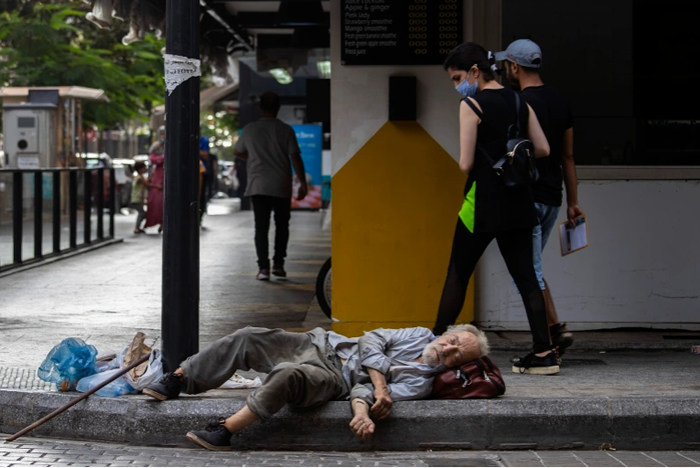
The United Nations has sounded the alarm on Lebanon’s spiralling economic meltdown, calling on the country’s leadership to urgently implement reforms as extreme poverty deepens and starvation becomes a “growing reality” for thousands of people.
“The situation remains a living nightmare for ordinary people, causing unspeakable suffering and distress for the most vulnerable,” United Nations Resident and Humanitarian Coordinator for Lebanon Najat Rochdi said at a news conference on Friday.
The UN estimates that 78 percent of the Lebanese lives below the poverty line – some three million people – with 36 percent of the population living in extreme poverty. Almost a quarter of the population was not able to meet their “dietary needs” by the end of last year, the UN said.
“Starvation has become a growing reality for thousands of people,” Rochdi said.
“Today, we estimate that more than one million Lebanese need relief assistance to cover their basic needs, including food.”
The international community has repeatedly urged Lebanon to reform its economy, notably by ending wasteful spending and corruption, and restructuring its ineffective energy sector. They have also called for a forensic audit of the central bank.
“We’ve never seen these growing needs among the Lebanese population before,” World Food Programme spokeswoman Rasha Abou Dargham told Al Jazeera. The organisation now provides food assistance to one in four people in the country, with demand for food assistance at an all-time high.
“We’re now the largest [UN] agency in Lebanon – unfortunately.”
The Lebanese pound has lost 90 percent of its value against the dollar amid Lebanon’s economic meltdown over the past two years.
Buying power has dwindled as millions are locked out of their savings in the country’s stricken banks.
A fuel crisis has paralysed much of Lebanon over the past few months, causing large-scale power outages and crippling hospitals.
Life-saving medicines have been missing from pharmacy shelves, including cancer treatments. Families have had to dig deeper into their pockets to buy them at inflated rates through the black market if they can afford to do so.
Rochdi said the medical crisis was a “death sentence”.
Prime Minister Najib Mikati, whose recently formed government is the country’s first in 13 months, has promised to implement swift reforms, resume talks with the International Monetary Fund for a bailout programme, and pave the way for economic recovery.
But Rochdi said Lebanon’s fate lies in the political will to make its economy viable again, and that humanitarian interventions are not the solution.
“Humanitarian action is meant to be by nature short-term, temporary and unsustainable,” she said. “It is not meant to solve the root causes and drivers of a crisis.”
According to the UN’s Emergency Response Plan for Lebanon for the next year, $383m will be required for them to target 1.1 million people in need. Its programmes span a host of issues, including food security, education, healthcare, sanitation, and child protection.
“The resilient people of Lebanon are now tired of being resilient, of thorny problems that life is throwing at them,” Rochdi said. “They want to simply live in dignity.”
Source: Aljazeera.com























